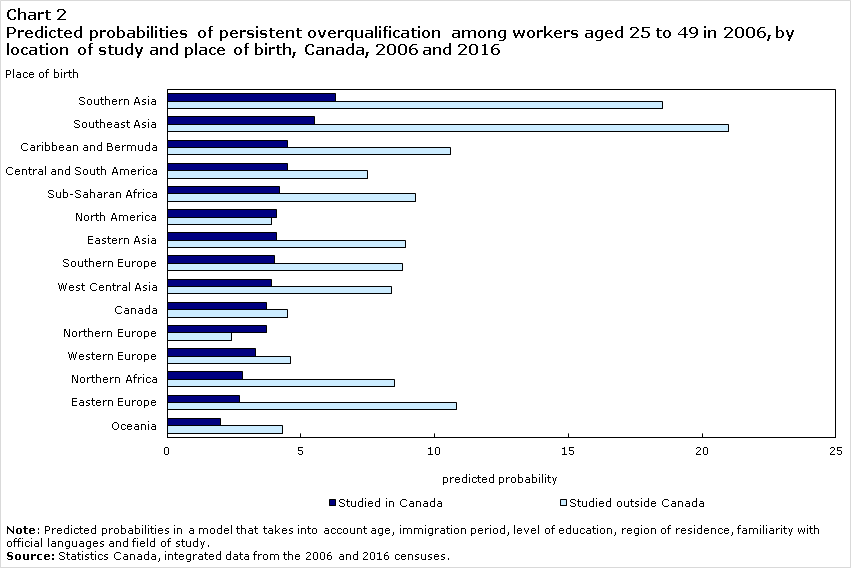
A new study by Statistics Canada highlights the benefits of studying in Canada for newcomers when integrating into the Canadian labour market. The study looked into persistent overqualification of immigrants versus non-immigrants during 2006 and then again in 2016.
Overqualification in the study is defined as a situation where university degree holders (bachelor’s degree or higher) hold jobs that require no more than high school education. Persistent overqualification is when someone experienced overqualification both in 2006 and 2016.
The benefits of studying in Canada
On average, only 3.6% of non-immigrant Canadians experience persistent overqualification compared to 10.1% for immigrant Canadians. Whether immigrants to Canada face persistent overqualification appears to correlate with the location of their studies.
Immigrants who have graduated from a Canadian university only experience persistent overqualification 4% of the time, similar to non-immigrant Canadians. Immigrants who studied outside of Canada experienced overqualification on average, about 14% of the time but the location of the studies still plays a big part.
Not all foreign graduates experience the same levels of persistent overqualification in Canada when they immigrate. Graduates from Northern Europe (3.7%), Western Europe (5.7%), North America (5.1%), and Oceania (6.2%) faired better than other locations examined in the study. Notably, Southeast Asian (20.4%) and Southern Asian (18.2%) graduates saw the highest levels of persistent overqualification.

What you study matters
In addition to the location of study, another factor that affects the chances an immigrant will experience persistent overqualification in Canada is the field of study of their degree. Graduates in the fields of education; mathematics, computer and information sciences; health and related fields; architecture, engineering and related technologies all performed better than graduates in humanities and social sciences.
Gender also plays a part
Overall, women (5.6%) were slightly more likely than men (5.0%) to have experienced persistent overqualification. This gap was even greater among immigrants: 11.6% of immigrant women experienced persistent overqualification, compared with 8.7% of their male counterparts.
Conclusions
Given the finding that graduates from French or English speaking regions tend to fare better in the Canadian labour market, the difference in levels of persistent overqualification might come down to language proficiency. The rationale being, graduates who studied in English or French, in regions that also speak one of those languages, could be viewed by Canadian employers as better candidates but it is important to note that the study did not evaluate language proficiency.
It’s also important to note that this study only looked at persistent overqualification for two, one-year periods. It also did not consider the level of work experience applicants had or how degrees from abroad are recognized by Canadian employers.




